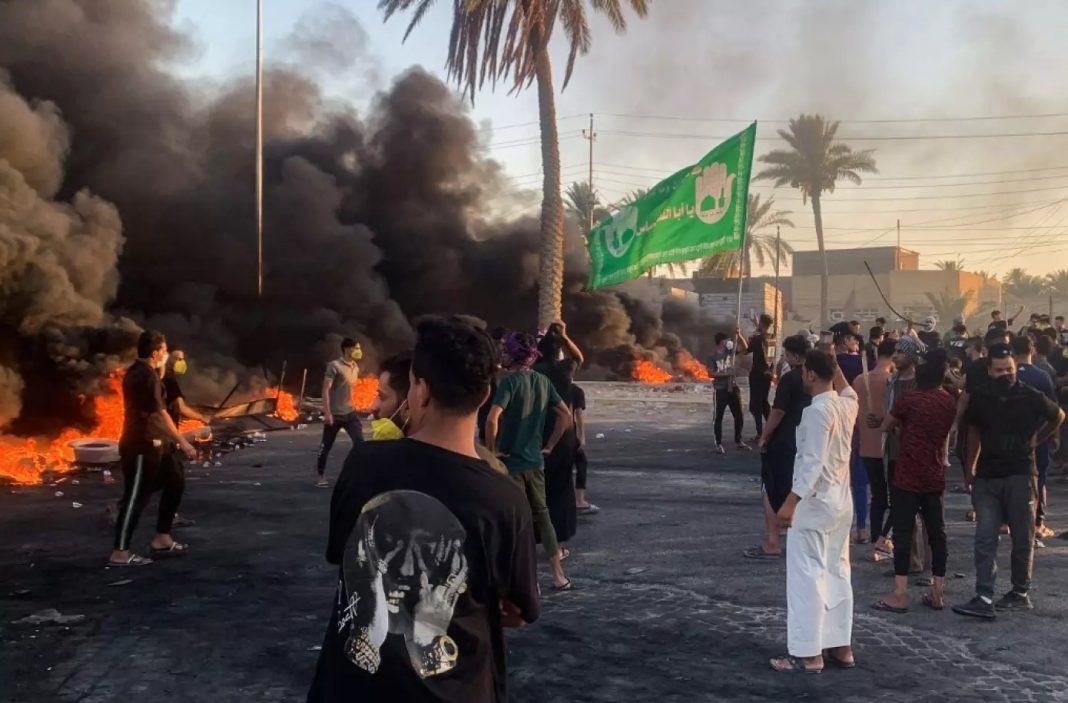There have been days of demonstrations, primarily in the cities of Diwaniyah and Najaf in south-central Iraq, with activists burning tyres and police reportedly firing tear gas and live ammunition to disperse the crowds.
According to independent Iraqi TV station Al-Sumaria, hundreds of locals took part in protests on Sunday evening in Diwaniyah, complaining of “unfairness” and “favouritism” in distribution of power in the area.
“The demonstration began in the Shamiya district and the demonstrators blocked the Diwaniyah-Najaf road in protest against the deterioration of services and the power outage,” a security source told the Iraqi outlet.
There were further demonstrations in Diwaniyah’s Shafiiyya district on Monday, with tyres again being burned.
Ammar al-Khazaaly, an activist who took part in the Diwaniyah protests, told Middle East Eye that Monday’s protests were ongoing and were facing “repression” by the security forces who fired tear gas and live bullets, leaving campaigners with “minor injuries”.
He stated that the numbers were lower than the Tishreen demonstrations that rocked Iraq after October 2019, but that the anger was still palpable.
“These protests are regional – in each region there are their own protests,” he explained, adding that they included veterans of the Tishreen protests as well as newly angry locals.
“The numbers are lower than in previous protests, but they are also large in number.”
Other demonstrations were held in the Haidariya district of Najaf on Sunday, and the Ghamas district that lies between Diwaniyah and Najaf on Saturday, which saw protesters injured by live fire.
Al-Sabah daily newspaper cited a statement from the Diwaniyah governorate office in which they said they were trying to achieve a “reliable” electricity supply.
Diwaniyah requires 850 megawatts of electricity, but currently experiences four hours of power outages with only two hours of electricity supply, the report added.
Protests against power cuts have become a regular feature in the country during the summer months, especially since the end of the war against the Islamic State (IS) terror group has made public gatherings less dangerous.
Although Iraq is a resource-rich country, a combination of corruption and crumbling infrastructure has left many without access to electricity, vital for keeping cool in one of the hottest places on Earth.
Rights and environmental groups have warned that climate change means that much of Iraq will likely be uninhabitable in the coming years and that demand for infrastructure investment to cope with rising temperatures will only increase.
In October 2019, mass demonstrations broke out across the country against corruption, poor public services, unemployment and foreign intervention in Iraqi politics.
However, they were met with brutal police repression, kidnappings by shadowy armed groups and mass arrests.
The Covid-19 pandemic also dampened much of the revolutionary fervour that the protests sparked and the anti-government movement has struggled to regain momentum since.
